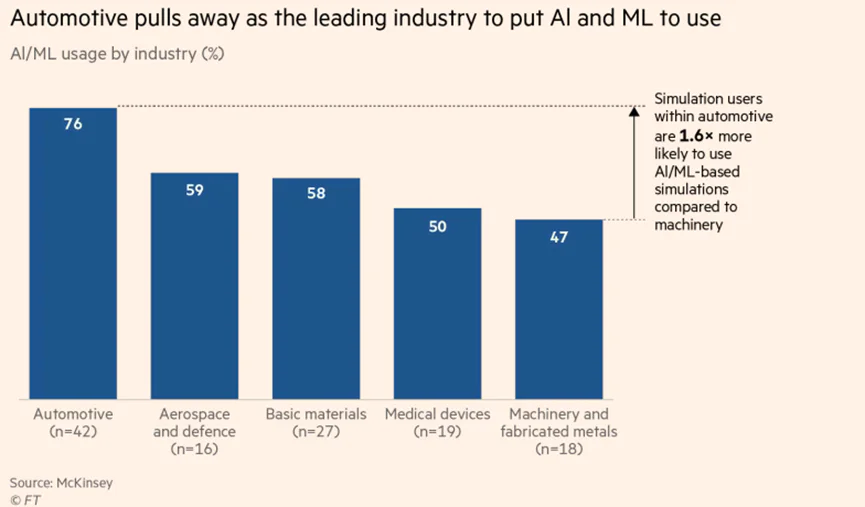When AI first emerged, people hoped it would help replace manual labor and liberate human productivity. However, the reality seems to have diverged; AI is becoming the productivity driver while humans are increasingly seen as "tools." In this context, how can you make yourself irreplaceable? Have you already sensed it?

As a "tool person" in the workplace, you may be experiencing a subtle anxiety—being replaced by AI.
This fear quietly grows when you find yourself typing away, completing repetitive tasks, wondering if machines will perform your job more efficiently tomorrow.
But remember, there is one thing that machines can never replicate: sensitivity.
Your sensitivity is your superpower; it is key to adapting to the future and transforming anxiety into action. Your sensitivity is a unique code to escape the fate of being replaced and to unlock personalized growth.
Together, we will explore how to enhance sensitivity on your journey of career growth and live an authentic and empowered life.
01 Your Growth Quagmire
Scenario 1: Lack of Sensitivity in Communication Between Superiors and Subordinates: Silently Eliminated
Have you ever experienced how your intuition reacts when your superior gives vague instructions? How do your colleagues respond?
Often, the scene unfolds like this: everyone replies, "Okay, got it." Then you really close your mouth (afraid to speak up, worried about being ridiculed), while your colleagues offer constructive suggestions and questions, making leaders feel that they have valuable ideas.
A perceptive employee can read deeper intentions in their superior's instructions and sense hidden needs in silence.
Conversely, when you are insensitive, you may strictly follow your superior's literal requirements, ignoring the deeper meanings behind them.
The result is that when decision-makers seek insightful, forward-thinking employees who can take on greater responsibilities proactively, you may find yourself quietly excluded from promotions.
In this rapidly changing world, insensitivity equates to stagnation. Where there are people, there is a world; the foundation of human relationships lies in your sensitivity and judgment of others.
Scenario 2: Insensitivity in Product Design: A Stumbling Block to Innovation
Imagine you are responsible for gathering market feedback and conducting competitive analysis during a crucial product iteration.
As an insensitive individual, you may overlook subtle pain points in user experience or ignore clever design innovations from competitors, focusing only on superficial, obvious features.
For instance, if you are a product manager for a certain book, and user feedback indicates that the shared file links only show a string of text without revealing what the file is, while a competitor’s product allows users to see the file directly, you might fail to notice the need for improvements in how links are optimized, such as icons for shared links, the position and color of the share button, etc.
As a result, after the release of the new generation product, market response is tepid, and user dissatisfaction rises, while competitor products gain favor for addressing these details and making improvements.
On a company level, this insensitivity may lead to repeated missed market opportunities, gradually damaging brand image, decreasing market share, and even causing economic losses. For teams, insensitivity can lead to low morale and talent loss because no one wants to work long-term in an environment lacking innovation.
On a personal level, projects that fail due to insensitivity can directly impact your career development, diminishing your value in the company. In the worst-case scenario, you may become a casualty in the next round of layoffs.
02 Practicing to Enhance Your Sensitivity
As mentioned, sensitivity is not innate; it can be cultivated through observation, learning, and practice. In the grand stage of the workplace, every scenario presents an opportunity to test and enhance your sensitivity.
Scenario 1: Practicing Workplace Reporting
Preparation Stage:
Delve deeply into the reporting content; understand not only the surface data but also the underlying logic. (In many reporting scenarios, you can feel that when the reporter lacks control over the content, they will appear anxious and insecure.)
Study the characteristics of your audience, including your superior’s working style and team members’ interests.
Reporting Practice:
Pay attention to your word choice; use clear and powerful language to convey key information. (Words like "possibly," "maybe," or "I think" are best avoided.)
Observe the audience's reactions—eye contact, facial expressions, and body language—to identify their interests or confusion.
Ask questions and invite feedback; this helps you better understand the audience's perspectives and needs.
Follow-up Strategy:
Adjust your future work plans or methods based on the feedback received during the report.
Pay attention to informal feedback after the report; sometimes, the real feedback happens outside the formal presentation.
Scenario 2: Sensitive Practice in Client Communication and Interaction
Preparation Stage:
Research the client’s background, including previous communication records and the latest developments in their company.
Prepare targeted questions to guide the conversation and uncover potential needs.
Communication Practice:
Stay calm; control the pace of the conversation to ensure quality interaction.
Actively listen; focus on what the client says and does not say, capturing all non-verbal cues.
Provide personalized suggestions based on observed details to customize solutions.
Relationship Maintenance:
Follow up continuously to understand the client’s real feelings about the product or service.
Analyze feedback and use it as a basis for future improvements.
Scenario 3: Sensitive Practice in Task Execution
Planning Stage:
Fully understand the purpose of the task and the final goal, considering how each step aligns with the overall strategy.
Research relevant information and anticipate possible challenges and solutions.
Execution Practice:
Stay updated on industry trends and adjust your work strategies promptly to adapt to changes.
Seek opportunities for improvement in any work task, no matter how small; do not overlook minor optimizations.
Evaluation and Adjustment:
After completing the task, reflect on the entire process, identifying areas for improvement or mistakes that need timely review.
Collect feedback from relevant personnel in real time and use it as a crucial reference for the next stage of work, avoiding repeating the same mistakes.
Final Thoughts
The above discussions on sensitivity in relationships, tasks, and other workplace practices highlight the importance of being sensitive in various contexts. Now, let’s touch on sensitivity outside of work.
This specifically refers to your sensitivity to your career. In my first job, my departure was somewhat forced due to poor management, leading to a dilution of company culture and spirit, causing former colleagues to leave and eliminating any potential for forward development.
I reflected on why things ended up this way and how to avoid the impact of changes within a company. I distilled two key points:
Is there potential for your skills to grow?
Will your salary effectively motivate you as your skills improve?
The first point is related to your inherent abilities, while the second concerns the recognition and positive feedback from the company regarding your skill enhancement.
If either is missing, as time goes on, you may fall into a vortex of self-doubt. Perhaps it's not that you can't succeed; maybe it's time for you to consider making a change.
This is sensitivity regarding your career outside of work.
I hope this brings you some inspiration. Keep it up!







